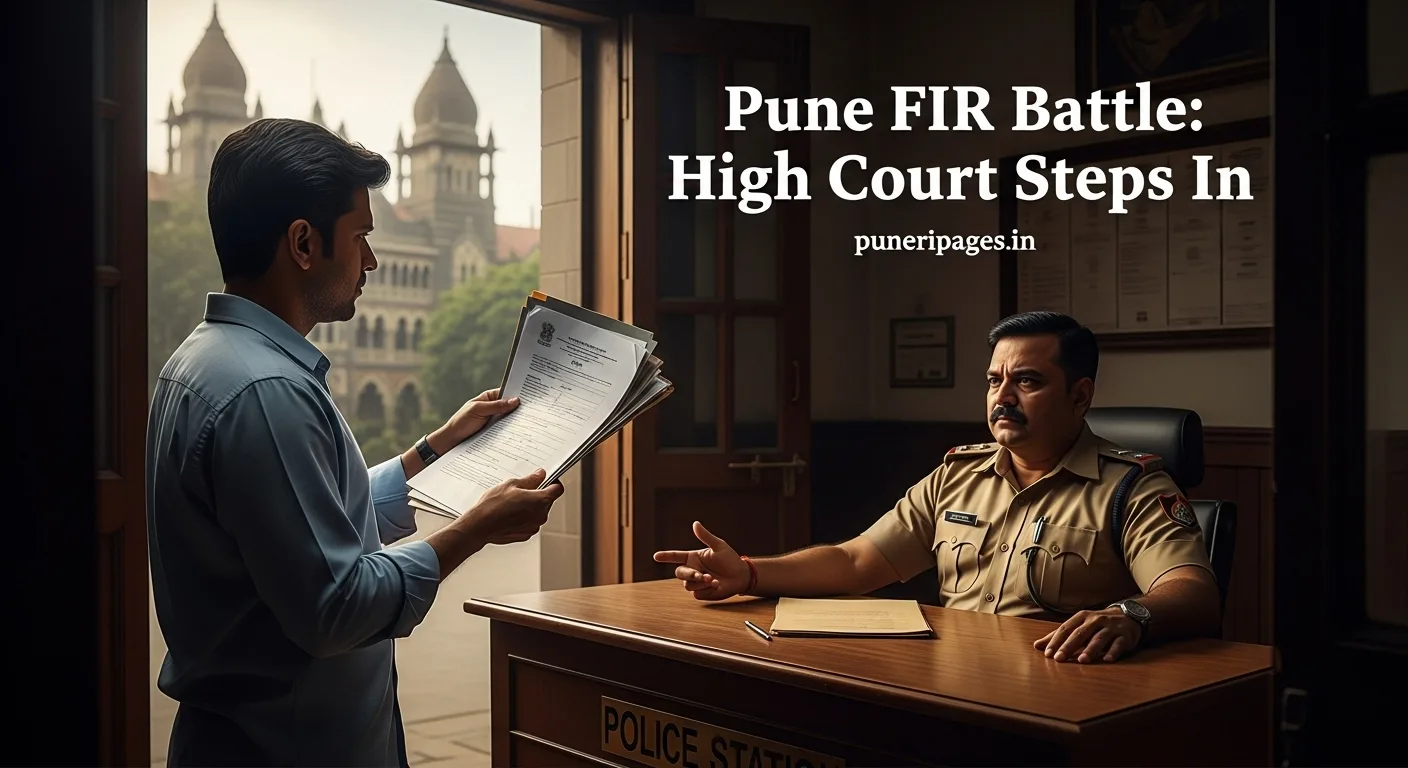
Pune citizen’s determination for justice forces High Court to order FIR registration – puneripages.in
By Prashant for PuneriPages.in
Picture yourself in the middle of a chaotic road rage incident. You’re bruised, shaken, and running on adrenaline. You head straight to the police station, hoping for help and expecting the law to work for you. But instead, you’re met with a cold shoulder — denied the first, most crucial step towards justice: filing a First Information Report (FIR).
That’s exactly what happened to one Pune resident. But instead of giving up, he decided to fight back. His determination took him all the way to the Bombay High Court, where the judges didn’t mince words — they ordered the Khadak police to do their job, making it clear that no one, not even the police, is above the law.
Table of Contents
Why an FIR is Your First Step to Justice
An FIR — or First Information Report — is the document that kickstarts a police investigation into a cognizable offense (think serious crimes like assault, where the police can arrest without a warrant).
Is it mandatory? Absolutely. Under Section 154 of the Criminal Procedure Code (CrPC), police must register an FIR if they’re told about a cognizable offense.
Why police inaction is a big deal: Without an FIR, nothing else happens — no investigation, no evidence collection, no chargesheet. Basically, no FIR means no justice. Refusing to file one isn’t just laziness; it’s denying a citizen their legal right.
The High Court Steps In
When the High Court ordered the Khadak police to file the FIR, it wasn’t just about this one case — it was calling out a wider problem.
- Balancing the scales: The Court had to force the police to do their most basic duty. That says a lot about the gap between citizens and those meant to protect them.
- A public warning: This was a clear message to all police — ignore your duty, and the judiciary will step in.
If the Police Refuse to File Your FIR
If you ever find yourself in this situation, here’s your step-by-step action plan:
- Go up the chain
If the first officer refuses, approach a senior officer like the DCP or Commissioner. - Put it in writing
Send a complaint by registered post to the Superintendent of Police or DCP. They have the power to make it happen. - Let the court order it
File a private complaint under Section 156(3) CrPC in a Magistrate’s court. The Magistrate can order the police to register and investigate.
Why This Case Matters
This isn’t just about one man in Pune. It’s a wake-up call. It’s proof that citizens have the power to push back when the system drags its feet. The High Court’s move reinforces something every citizen should remember: justice delayed at the first step is justice denied.
And if you ever face the same, you don’t have to take “no” for an answer.